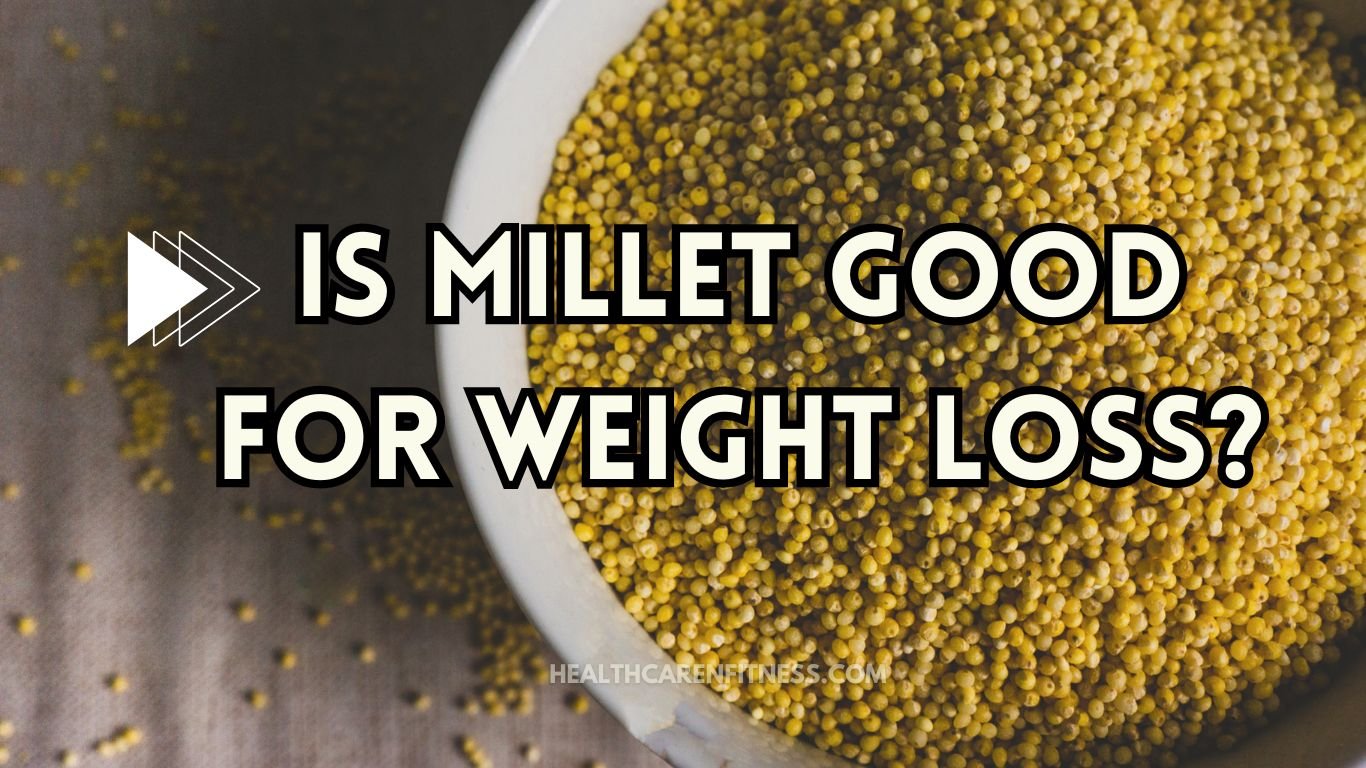
Introduction
As people look for healthy and sustainable weight loss strategies, millets emerge as a hidden gem in the world of nutrition. This gluten-free grain, rich in nutrients and versatile in cooking, has been a staple in various cultures for centuries. Today we delve into the question, Is Millet Good for Weight Loss? From exploring its nutritional benefits to examining real-life success stories and expert insights, this guide aims to illuminate how millets can supercharge your journey to a healthier and fitter you.
Is Millet Good for Weight Loss? Yes, Millet is a nutritious grain that can be beneficial for weight loss. It is low in calories and fat, making it an ideal food for weight loss.
What are Millets?
Millet, an ancient grain grown for centuries, is a gluten-free, nutrient-rich and versatile food crop. Rich in fiber, protein, vitamins and minerals, they offer a nutritious alternative to wheat and rice.
Millet and Weight Loss: Is Millet Good for Weight Loss?
While no food alone guarantees weight loss, millet boasts a number of characteristics that make it a nutritious addition to a balanced diet.
1. High Fiber Content
A nutrient-rich grain, millet is a rich source of fiber, which promotes satiety and supports digestive health. This makes it an excellent choice for those looking to manage their weight and overall well-being.
2. Low in Calories
Compared to other grains, millet has a relatively low calorie content. This means you can enjoy a satisfying portion without consuming excessive calories, making it a great choice for weight management.
3. Nutrient-Dense
Millet is rich in essential nutrients, including B vitamins, magnesium and iron. When you’re trying to lose weight, it’s important to nourish your body with nutrient-dense foods to maintain overall health and well-being.
4. Slow Digestion and Blood Sugar Regulation
Unlike refined grains, millet contains complex carbohydrates that break down gradually, releasing glucose at a constant rate. This controlled release of sugar prevents sharp blood sugar fluctuations, protecting against weight gain and persistent cravings.
5. Versatility in Cooking
Millet is a versatile grain that can be enjoyed in a variety of ways. From breakfast porridge to salads, millet can be incorporated into your meals in countless dishes. This versatility makes it an excellent choice for those looking to add other whole grains to their diet. Millet is also a good source of protein, fiber and minerals, making it a nutritious addition to any meal.
Is eating millet every day good for the health?
Yes, incorporating millets into your daily diet can be beneficial to your health. Millet is a nutrient-rich grain that offers a number of health benefits. Here are some reasons why eating millet every day can be good for your overall well-being
| Benefit | Details |
|---|---|
| Nutrient-dense | Millet is a nutritional powerhouse rich in essential nutrients, including fibre, vitamins and minerals. It is an excellent source of iron, magnesium, manganese, phosphorus and zinc, as well as essential B vitamins such as thiamin, niacin, riboflavin and vitamin B6. |
| High in fiber | Millet is a nutritional powerhouse rich in fiber, which promotes weight management and digestive health. |
| Plant-based protein source | Millet, a versatile grain, packs a protein punch, providing about 6 grams per cup cooked. This makes it a valuable staple for those following plant-based diets, who may need alternative protein sources to maintain optimal muscle health and overall well-being. |
| Low glycemic index | Millet’s low glycemic index promotes consistent blood sugar levels, making it an ideal grain for people with diabetes or those trying to manage their blood sugar levels. |
| Gluten-free | Millet, a naturally gluten-free grain, offers a safe and tasty alternative for those suffering from gluten sensitivity or celiac disease. Its versatility makes it a great choice for those looking to reduce their intake of processed grains containing gluten. |
| Heart health benefits | Millet is rich in antioxidants and nutrients that can support heart health by reducing the risk of cardiovascular disease. Its ability to lower cholesterol, fight inflammation, and improve blood vessel function likely contributes to these benefits. |
| Versatile in cooking | Millet is a versatile grain that can be used in various dishes. It can be cooked into porridge, added to salads, used as a base for main dishes, or made into snacks and baked goods. The mild flavor of millet pairs well with a variety of ingredients. |
FAQ’s
How much millet should I consume for weight loss?
The optimal amount of millet in your diet depends on your individual needs and goals, and a registered dietitian or nutritionist can provide personalized guidance.
Are there any potential side effects of consuming millet?
While generally safe, millet may trigger allergies or digestive problems in some individuals, so consulting with a healthcare professional before incorporating it into your diet is prudent, particularly if you have underlying medical conditions.
Can millet be included in a gluten-free diet?
Millet, a naturally gluten-free grain, offers a versatile alternative to traditional wheat, barley or rye in gluten-free culinary endeavors.
Is millet suitable for a vegan diet?
Millet, a plant-based protein powerhouse, is an excellent choice for maintaining muscle mass and overall health in plant-based diets.
Conclusion
While answering the question, Is Millet Good for Weight Loss? you should understand that millet alone may not be a complete weight loss solution, it can undoubtedly be a significant asset to a balanced diet. Its high fiber content, low calorie intake and nutrient-rich profile make it the preferred choice for those looking to lose excess weight. However, as with any dietary modification, it is crucial to pay attention to your body’s signals and consult a healthcare professional or registered dietitian to ensure a safe and effective weight loss journey.
Remember, sustainable weight loss is achieved through a harmonious blend of healthy eating, regular physical activity and lifestyle changes.
